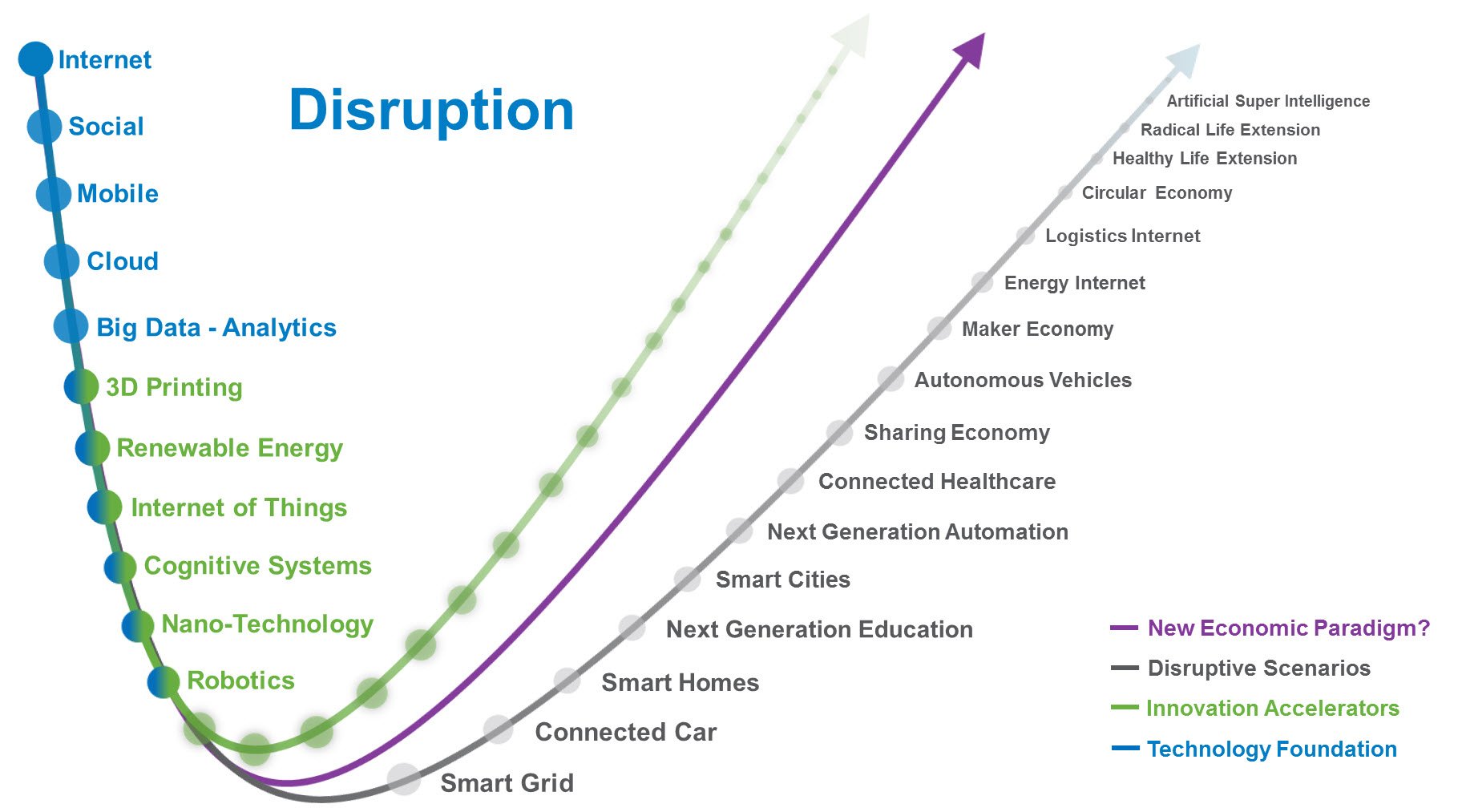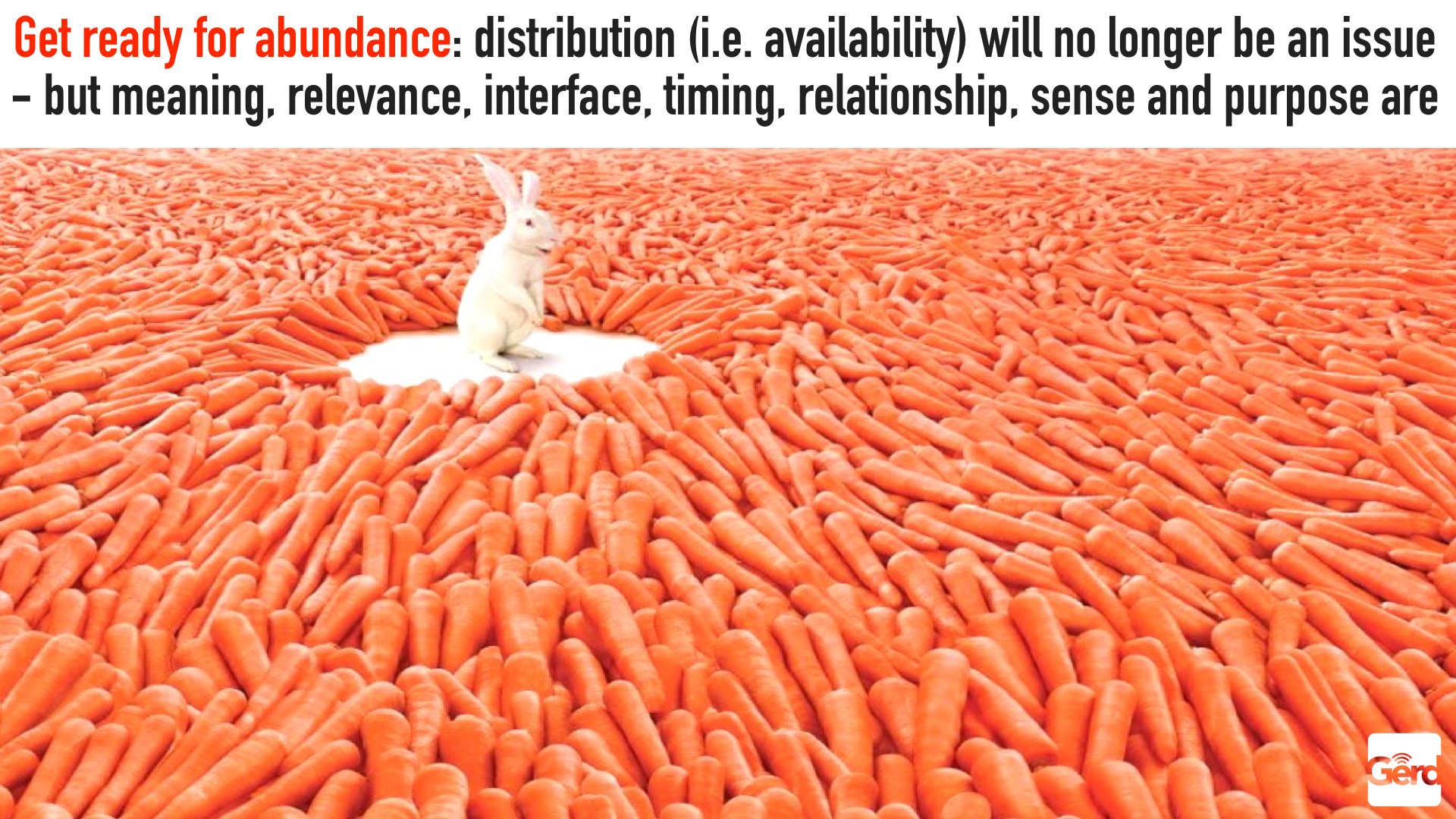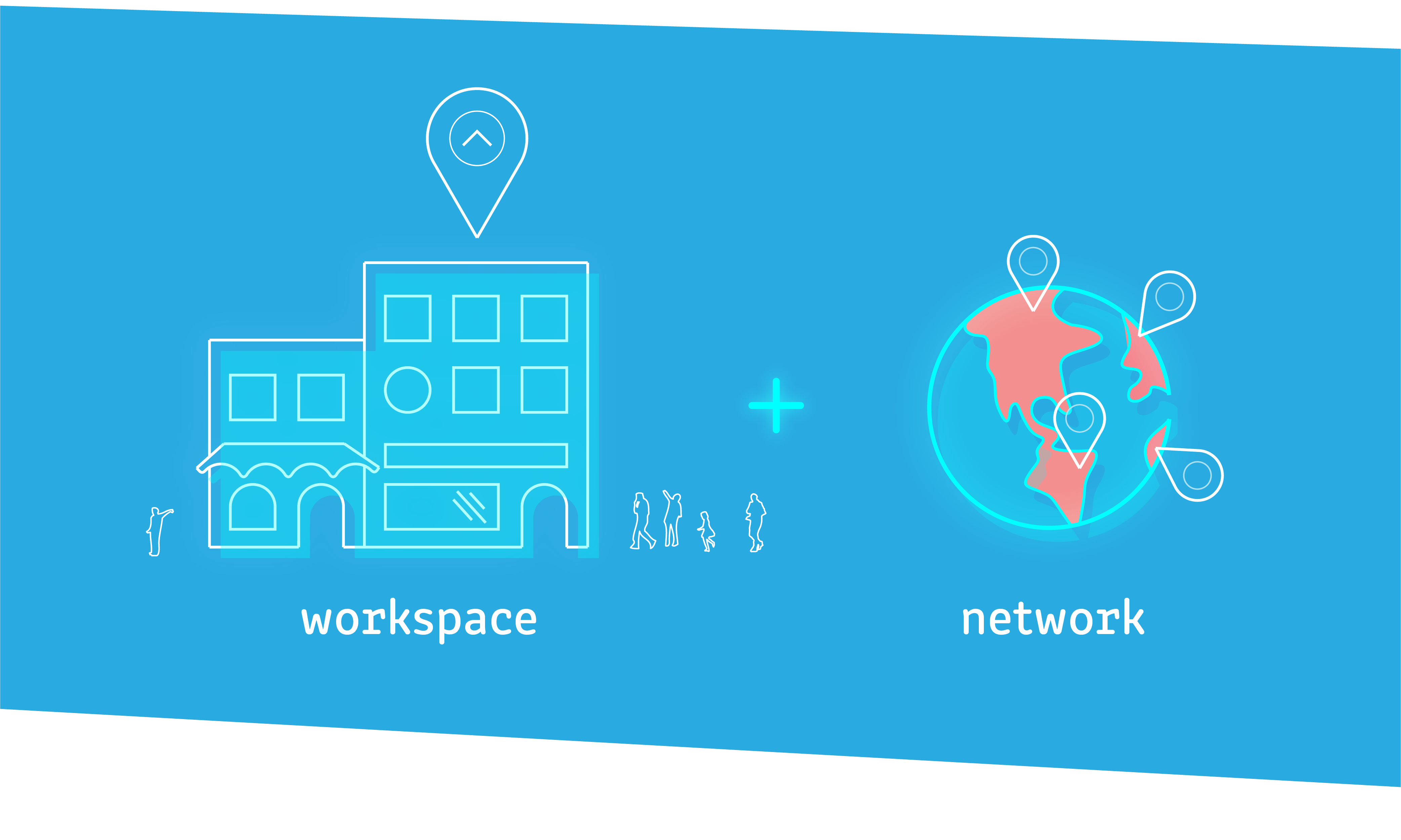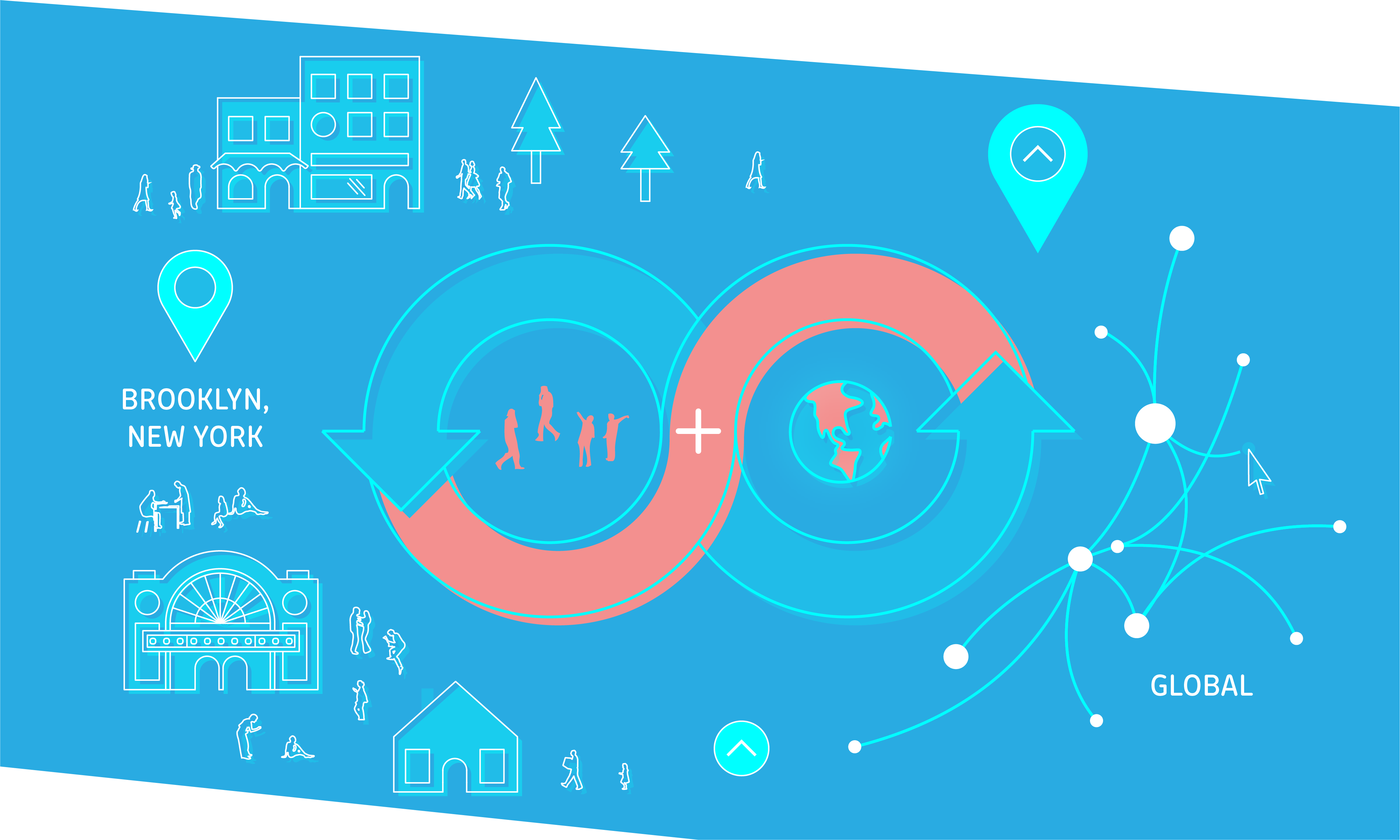
Dear readers,
I'm not the world's best elevator-pitch salesman who can persuade anyone into buying an idea in under 1-minute. But in this rather lengthy article, I hope to be able to provide something compelling enough to persuade everyone to start dedicating some of their extra time, effort, and resources into platforms like Steem - you're reading this post off the blockchain, by the way. Regardless of what the name is, allow me to outline the significance of this piece of technology.
The rise of the Collaborative Commons
Social Media is one of the most popular keywords of our times. With that, we tend to think of platforms like Facebook, Instagram, Twitter, Reddit, and just about any other popular apps out there. They are what they are - platforms that are social in nature. We share, and we interact on them.
Every technology that advances well enough tends to disrupt itself. We have seen this with Kodak, an organisation so successful that it eventually came up with digital photography, destroying themselves because of their core-dependence on film-based photography. Other than die-hard entrepreneurs, nobody else can really hope to compete with a near-zero marginal cost alternative. Film is physical. Digital images.. are well, digital. On the same cost of production, we can now capture and record way more digital photos compared to the film-based ancestors. The same can be said for all kinds of innovation that has been happening since the dawn of digitisation.

While this is to the great benefit for behemoths like The United States, AirBnb, Facebook, Google, Amazon, and such, market forces now seem to indicate that it's trickling into decentralised platforms where technologies, contributors, and organisations come together, pooling their resources under different flavours of cryptocurrency. The unspoken hope is probably to nurture sustainable organisations that we can all share. This paradigm is in fact, beginning to invade so many parts of the economy. It's nothing new, really, because our ancestors have been building the Commons even way before the Industrial Revolution. But the magic this time around is the convergence of finance, technology, and community. We are now creating new breeds of platforms that can ultimately be characterised as the Collaborative Commons - complementary, globally-scaled, borderless, voluntarily shared, and open for participation.
It's still a huge experiment, for sure, just like anything else! And it really all depends on community. Just look at Bitcoin, Ethereum, IOTA, and Steem. Let them be known as part of the Collaborative Commons. Maybe I just tend to prefer to use this keyword compared to Blockchain (which also does not provide an apt visualisation for the latest wave of decentralisation technologies).
Not perfect, but necessary
We are creatures that tend to use perfection as a benchmark for our arguments and decisions. Rightly so, and indeed they are sometimes necessary for changes to happen. So far, my experience in cryptocurrencies and blockchain communities has actually taught me much about life. In fact, I've been seeing both centralisation and decentralisation as being one and the same, each serving our first and second nature.
Action and reaction.
Matter and antimatter.
Culture and counterculture.
Capitalism and the Collaborative Commons.
The lines are blurring anyway. Despite the inefficiencies and disagreements that are widespread in decentralisation, at least we now have something that is more circular rather than pyramidal. Also, consider the scenario that our marginal cost of society is tending to zero. So it really doesn't make any good sense anymore for us to continue putting 100% of our time, effort, and resources into centralised platforms. It's time to expand into the Collaborative Commons.

It's best to continue learning and stay involved in platforms such as Steem, regardless of who you are. Your experience may vary, but if it's not your cup of tea, then be rest assured that you will likely find other suitable projects. It remains that Steem is one of the most accessible Collaborative Commons around, since no specialised equipment or skill is required. Only a willingness to learn and do things. Keep in mind what you're experiencing on this platform now is not the final product - it's still an on-going project, driven by the community. Just like any other Collaborative Commons out there.
The future of zero-fee trading and micropayments
One of the main features of the Collaborative Commons is the powershift from platform-centrality into the hands of many. Abstractly speaking, we should not be penalised for operating with our resources. We've been seeing this happening in most places. Intermediary fees are continuing to shrink. I really believe this is a glimpse into a zero marginal cost society, which is why I think projects like Steem, EOS, and IOTA are on the right track due to their emphasis on operating with zero transaction fees.

Financially-speaking, this is true scalability because these technologies now allow anyone to participate and experiment in capital markets without the friction of transaction fees. Imagine a 10-year old in a developing country, casually speculating and investing through some process of gamification with micropayments ranging from $0.01 and below. Consider the activities that will be happening in the Internet of Things. Plus, try extending this scenario to the majority of the human population that are not even participating at the moment. If this doesn't open the floodgates of mass adoption in the Collaborative Commons, I don't know what will.
I'm not saying there's anything inherently bad about platforms that charge transaction fees, it's just a different way of doing things and may even need to exist alongside zero-cost alternatives.
Revelations of my experience with Steem and others
As previously mentioned in one of my posts, I've been accumulating good chunks of Steem Power as it's one of the easiest and fun ways to be part of the Collaborative Commons while earning something out of it. At time of writing, I'm still continuously trying to grow and support a wide range of accounts all around the platform including regional communities, prosumer communities, and personal relationships.

Now there seems to be some pattern forming other than pure content, and that's the development of community hubs that could bring together physical and virtual communities. This can be seen through initiatives like @sndbox, @hitheryon, and other projects conducted by regional initiatives. Maybe one of the best use cases of the loose tag system, or the upcoming sub-communities feature on Steem is to form enough activities and trusted networks that enable some kind of sustainable, circular economy.
Here's a cute little story: Before the existence of Steem, I used to play around with an idea of building blockchain enrichment hubs all around to support workshops, co-living, and co-working spaces. All with good use of decentralisation technologies. It's still far-fetched, but there are already signs of it especially seeing initiatives done by the likes of @voronoi of @hitheryon and hubs like Fort Galt by @piedpiper. I remember back in 2016 when @voronoi was still @lgm-1 and a total stranger to me. However, I was convinced that his work is extremely valuable, and have proceeded continue supporting his account and bring attention to the community through votes. So yes, it's not much and I'm sure great talents will get to the forefront anyway, but I'd like to believe that some of the influence, or Steem Power, that I've exercised on this network have positive real world effects.

As for the other blockchain communities, I'm pretty much just participating in some discussions while holding some of the related cryptocurrencies like IOTA, EOS, Aragon, Cofound.it, Santiment, Lisk, and such. But to be honest, I think they should be somewhat integrated in a place like Steem / Steemit at one point or another for better involvement, at least from my side. It remains that they're a construct of the Collaborative Commons as long as one has some stake in them.
Conclusion
This is the most exciting, long-term game on the planet. For me, it's the not-very-liquid market that unnecessarily creates the worst in human nature. Maybe part of the solution can be developed in the intersections of finance, technology, and community - the Collaborative Commons. Like Bitcoin, Ethereum, IOTA, Steem, and such. Sure, some of these may fail spectacularly - but there's really nowhere I'd rather be. By the way, you're definitely not reading this on just a Social Media website. It's a Collaborative Commons platform - perhaps the most epic and innovative invention in the 21st Century! The good news is that anyone can take part in all of these. Especially on this platform, since it doesn't require anyone to pay anything other than their time and effort. Hopefully, it will continue to be self-sustaining through our voluntary contributions.
Sure, there will always be greedy users taking advantage of the protocols. It's very difficult to entirely eliminate abuse. And greed is not 100% a bad thing anyway. The best way forward, I find, is to love and lead by example. There's just no other way around it. But of course, be vigilant and critical too - something that I can be terrible at. (Okay, I'll admit that I'm being politically correct here, and I understand actions have to be taken in fringe cases). In any case, put the effort and take up roles that may suit you. Experiment away! In some sense, the Collaborative Commons is something that integrates and aggregates our (in)dependencies, forming reputation and trust networks. It has been an exciting journey.
Below are some presentations that deserves some viewing, especially the first and second one if you're somewhat more of a cynic / pessimist on occasion.




